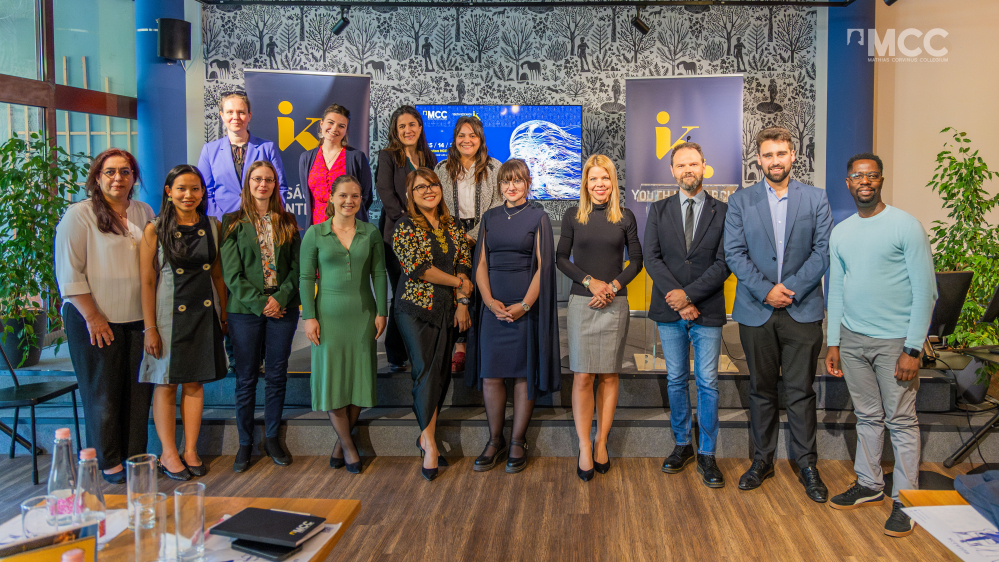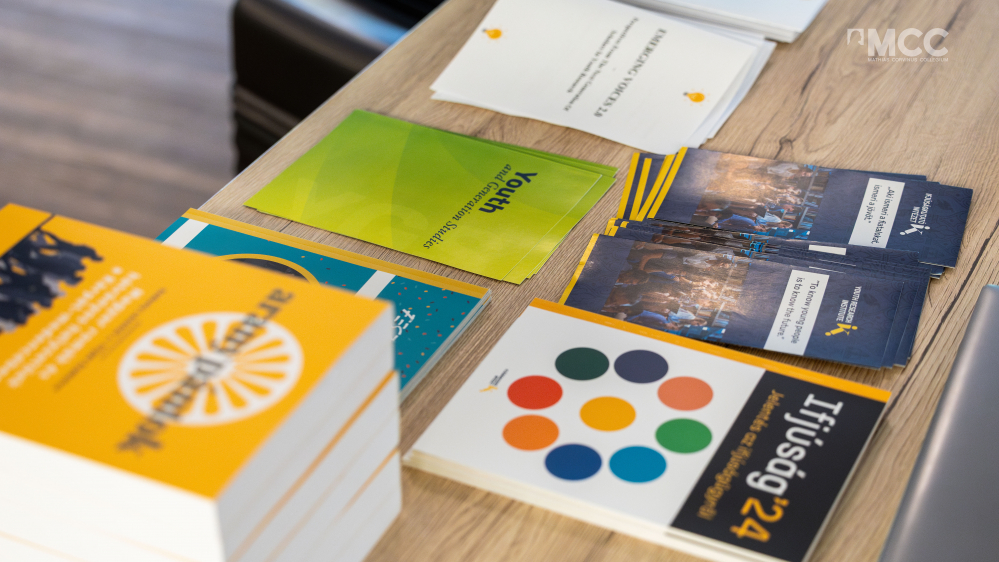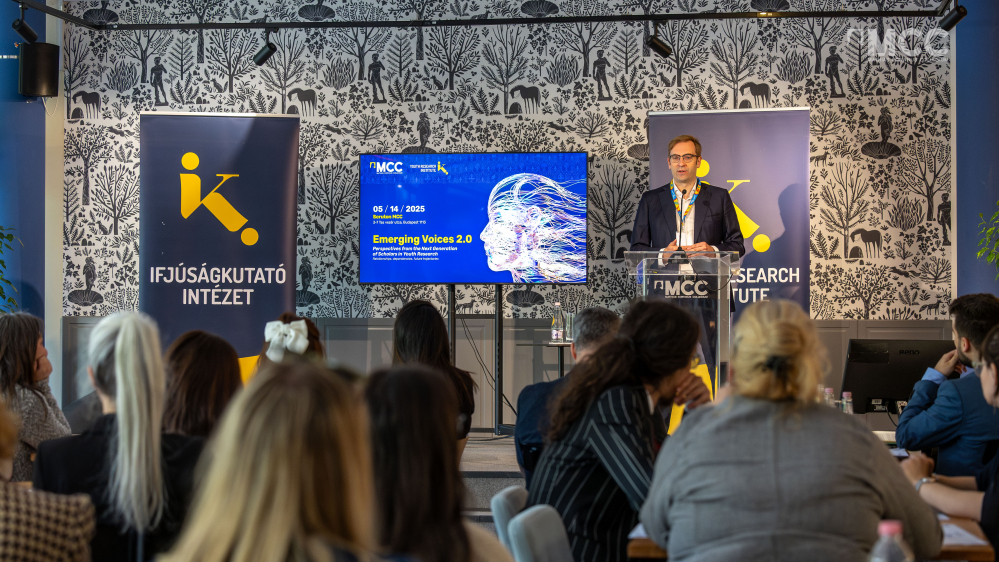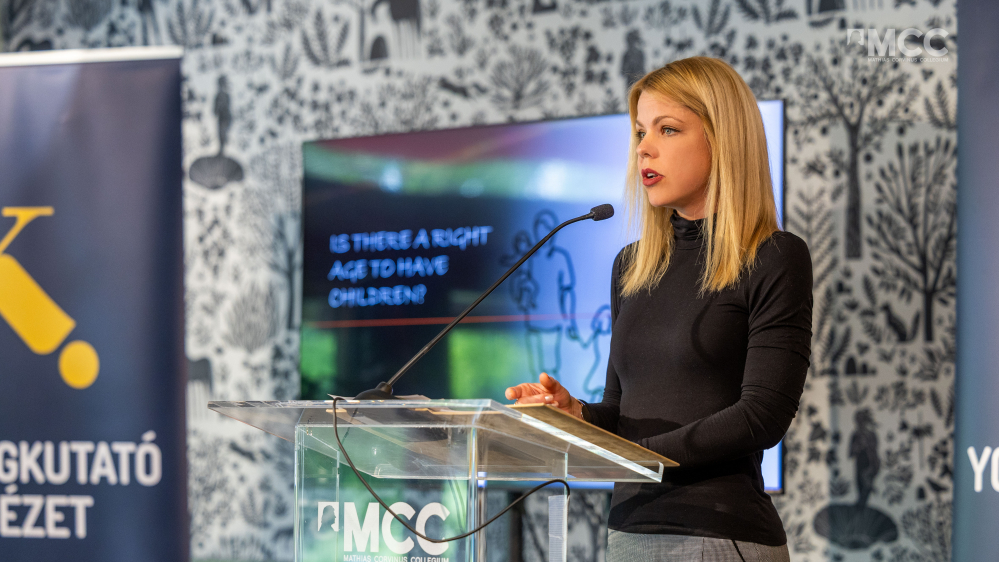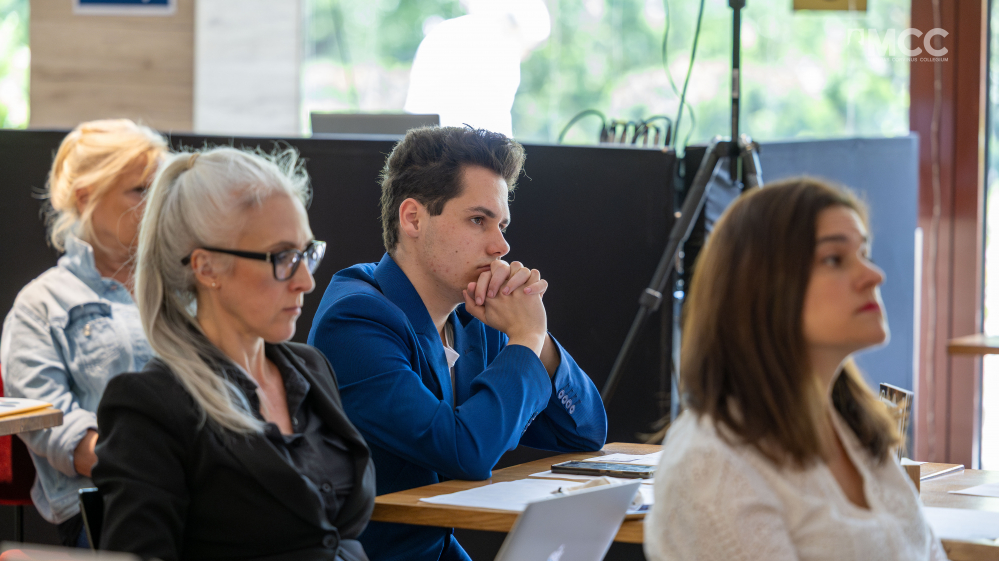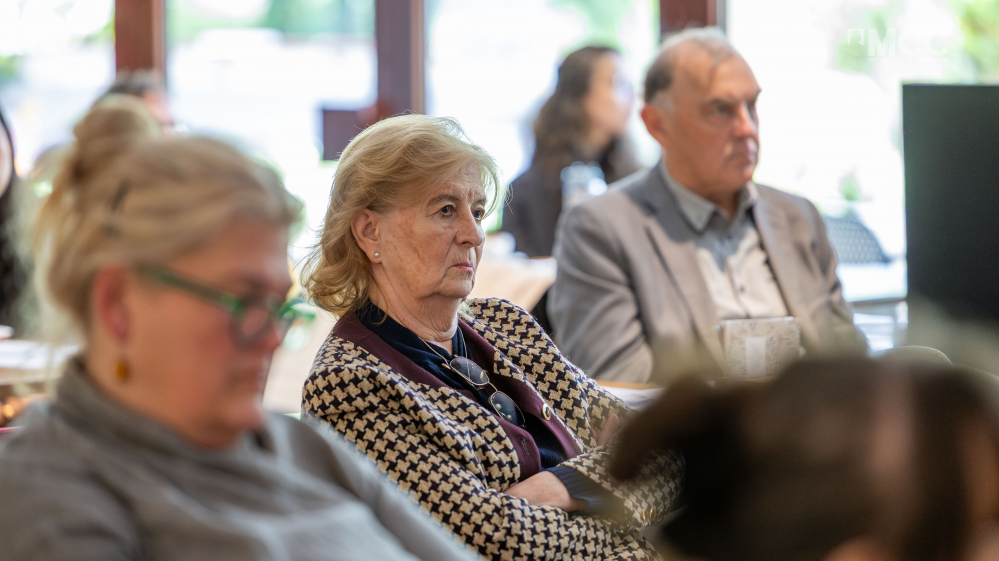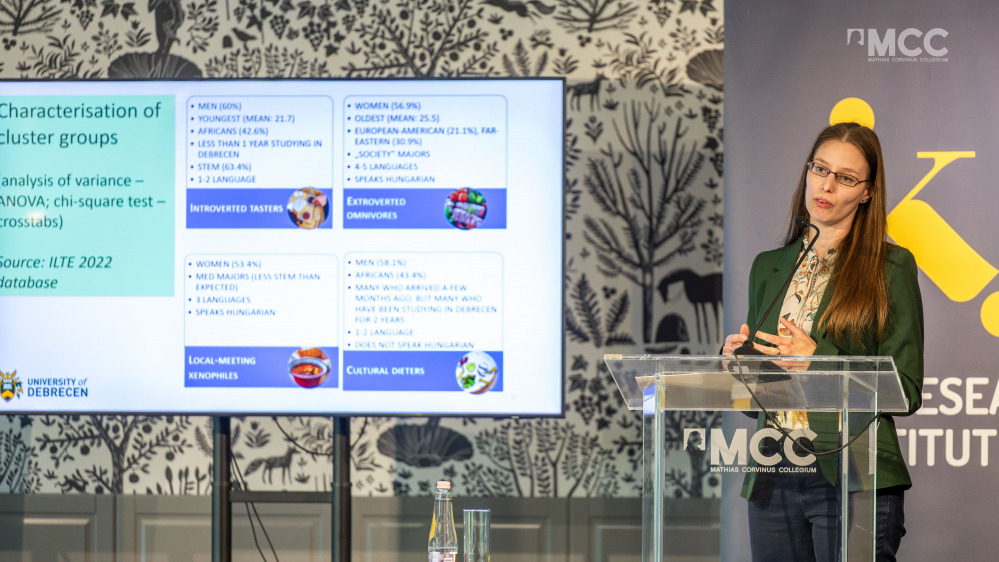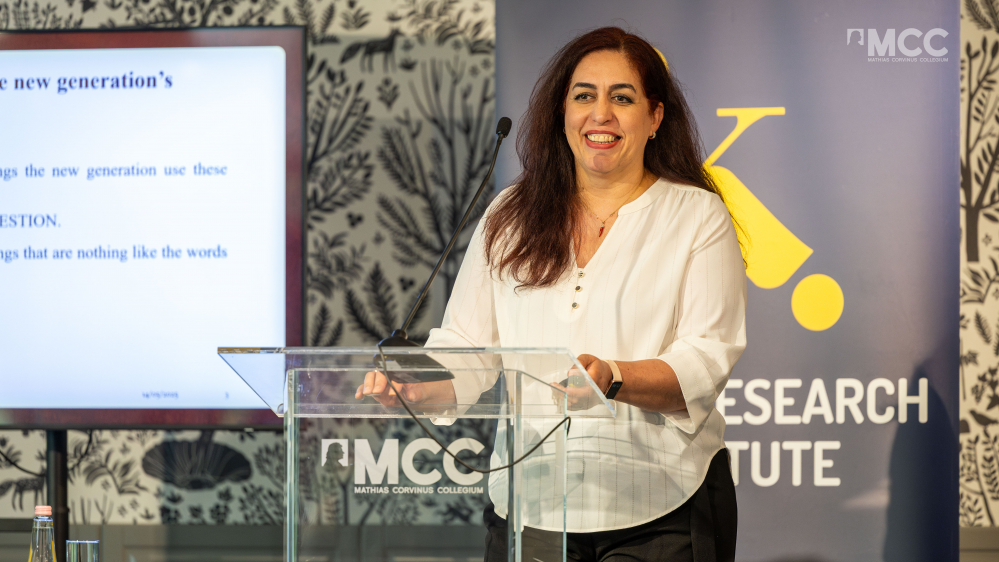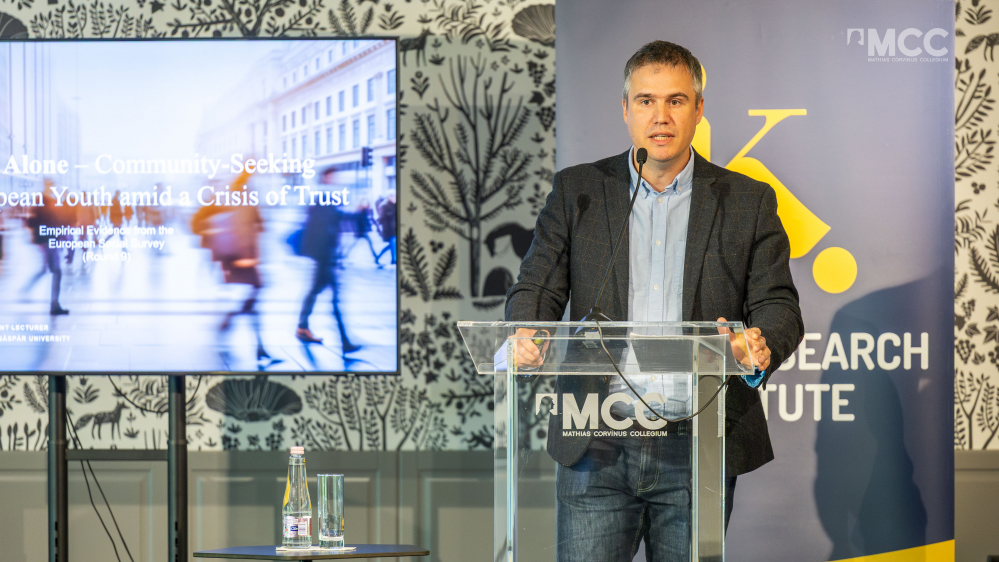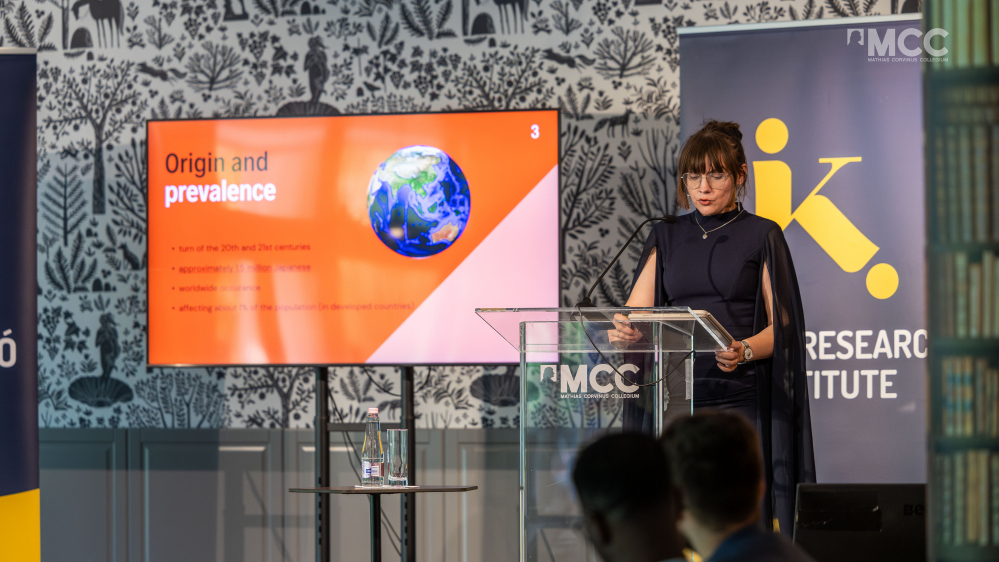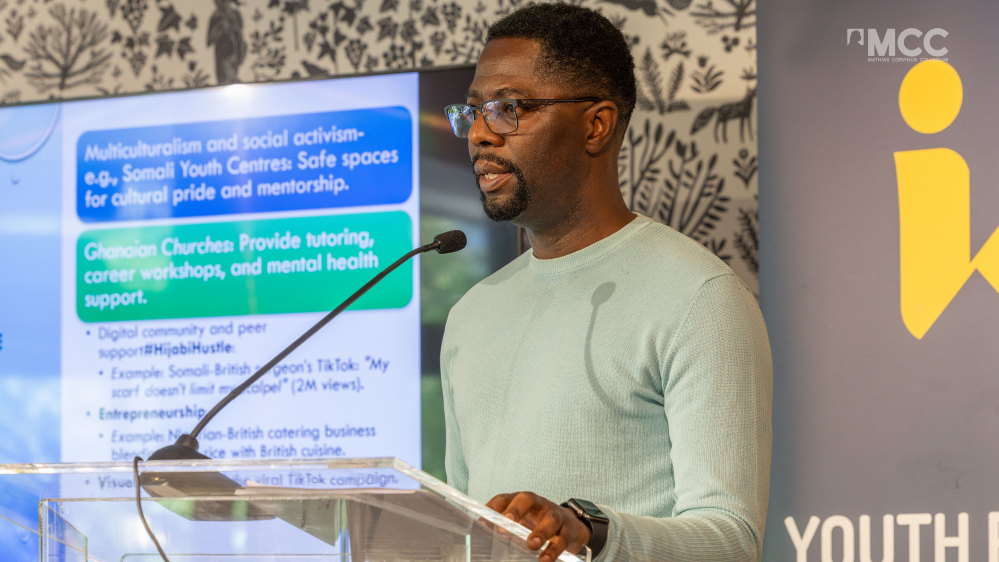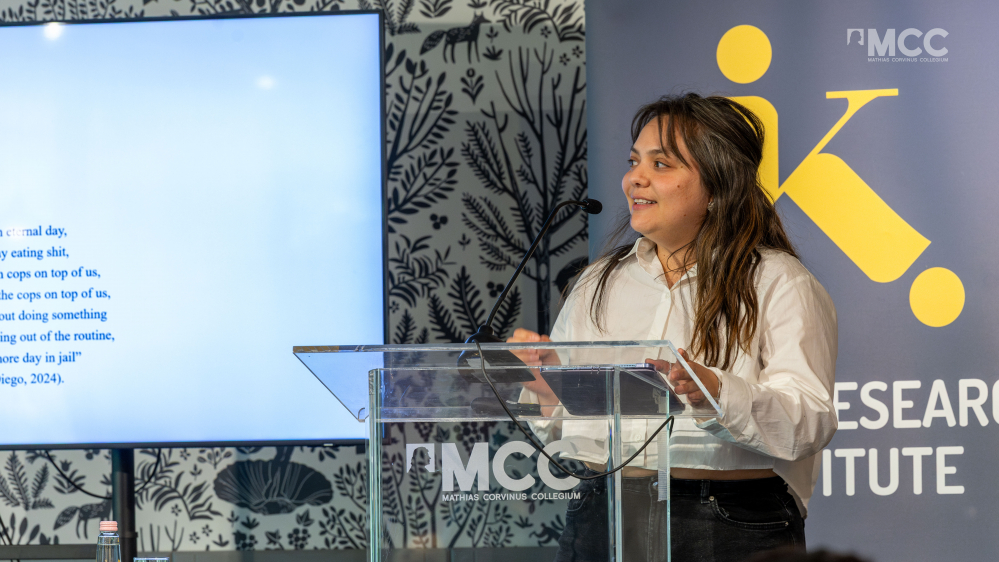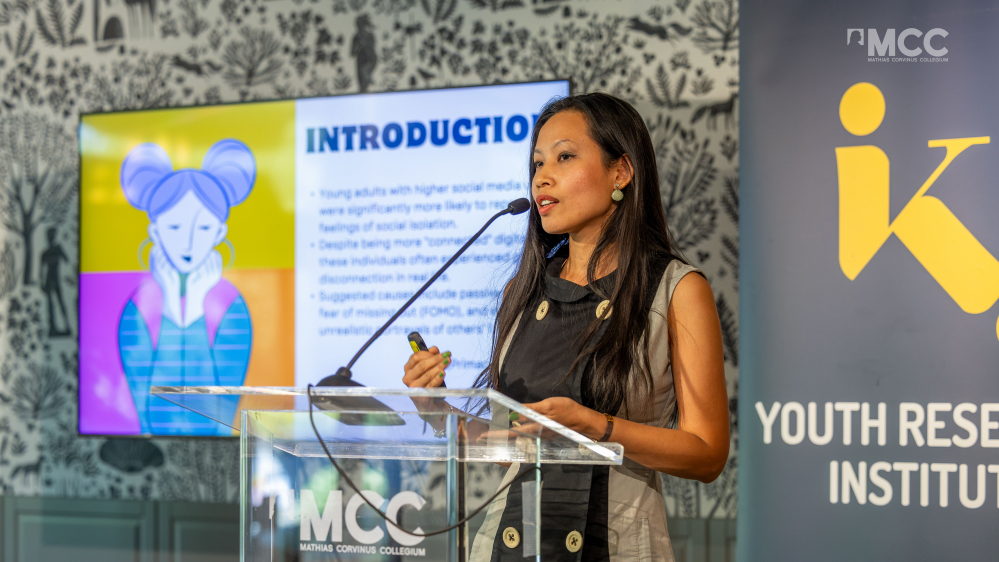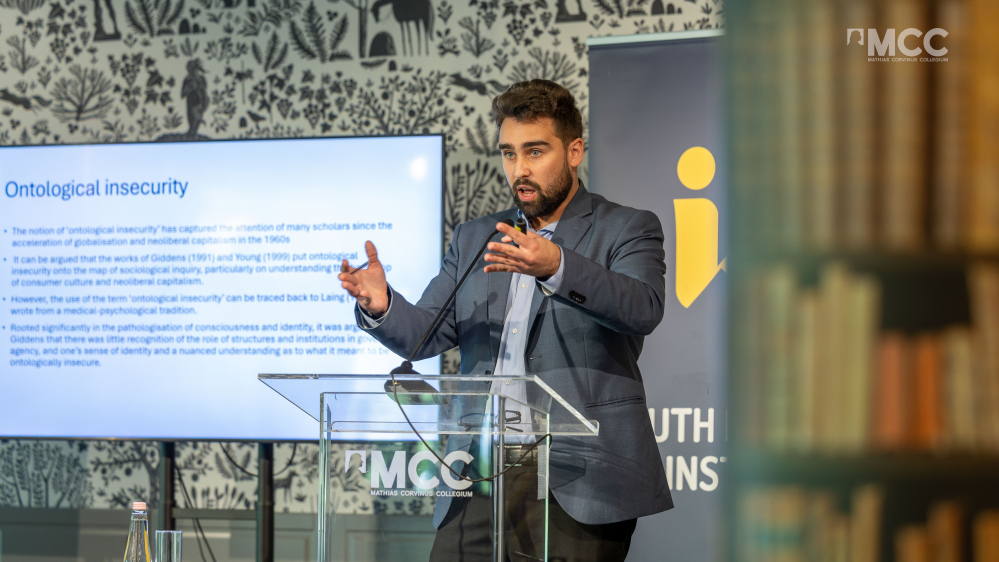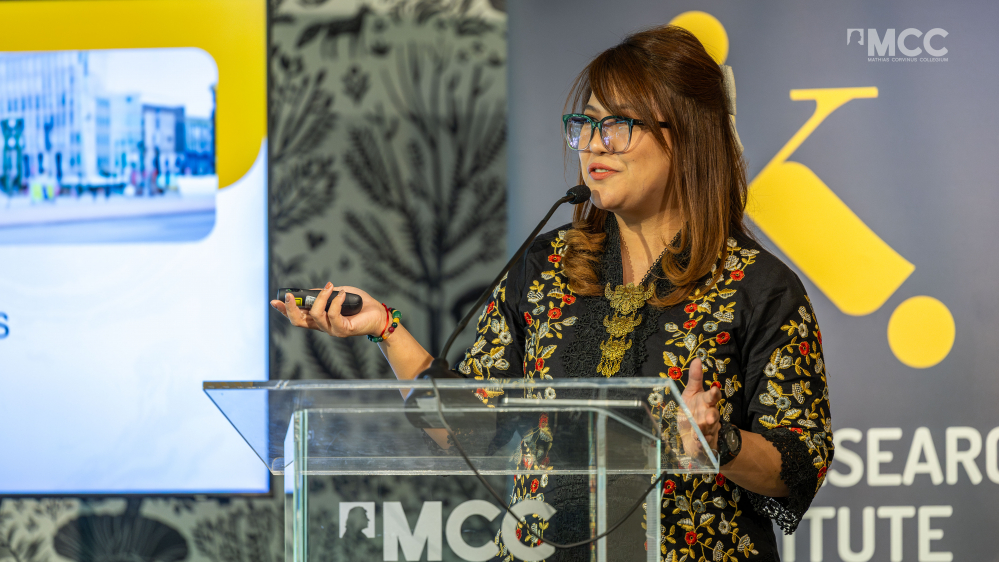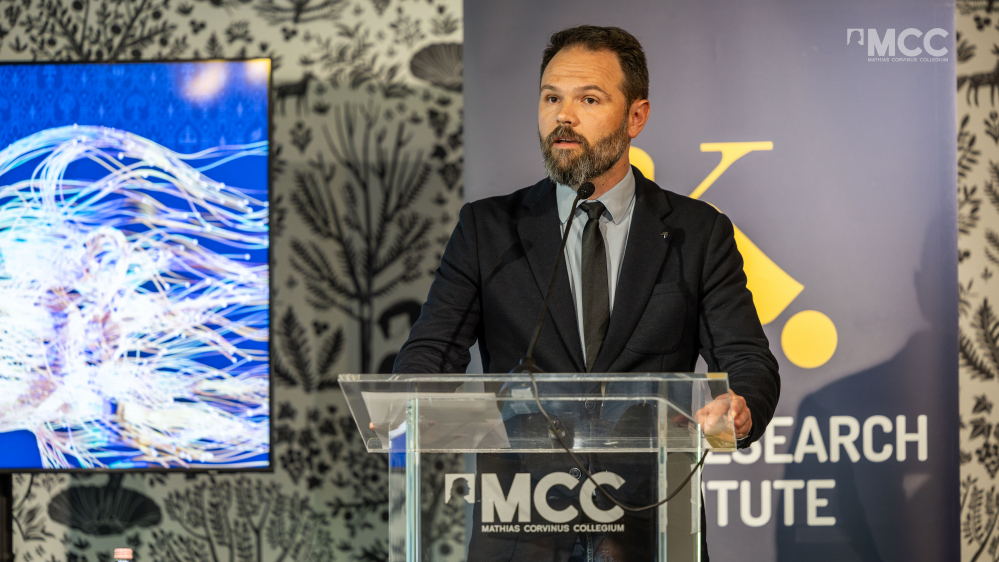This year, the Youth Research Institute organised its annual international conference Emerging Voices for the second time with the participation of young scholars from a variety of disciplines. In his opening speech, MCC Director General Zoltán Szalai stressed that the ongoing world crises do not distract our attention from youth issues at home and abroad, but rather focus it, as the physical and mental well-being, happiness and life preparedness of the young generations are key to a successful future.
The first of three keynote speakers at the event was Isabel Rodriguez-de-Dios, from the University of Salamanca, Spain, who presented her research conducted with Sara Pabian (Tilburg University, The Netherlands) and Heidi Vandebosch (University of Antwerp, The Netherlands) on the mediating effects of online experiences on the relationship between social media and adolescents' well-being. As there are far more cross-sectional than longitudinal studies on this topic, the Spanish researchers’ survey of a sample of 800 14-18-year olds in two waves is of the rarer ones. While the general consensus seems to be that social media have a detrimental effect on young people, the results of the Spanish research show that the impact is not direct, but rather negative or positive through the personal experiences and participation of users as content producers (active) or content consumers (passive). For example, while content producer participation can have a positive effect through developing one’s creativity, entrepreneurship, confidence and technical skills, the associated public exposure can include negative elements such as destructive criticism and cyberbullying. The passive role of content consumption produces a positive or negative effect depending on the content and the intention behind its use.
Dr Georgina Kiss-Kozma, Head of Research at MCC’s Youth Research Institute followed on with her presentation titled ”Carry The Fire – Why Do We Need Children”, in which she first gave a brief overview of the Hungarian and international demographical changes of the past few decades. She then presented the results of the Institute’s latest research that was jointly conducted with US-based polling and analytics firm Cygnal and investigated young Hungarians’ and Americans’ future and family creation plans along with some of the environmental and socioeconomic factors that influence these. Comparative data show that both Hungarians and Americans, albeit with small differences in percentages, tend to agree on fundamentals such as that in an ideal family parents are married and raise their children together, grandparents are available to take part in the care of their grandchildren, and that a younger age is best for the first pregnancy. However, the tendency to start out later in life and postpone family creation, compared to earlier generations, is now a global trend.
The last keynote speaker, Dr Milson Veloso from Corvinus University of Budapest presented research findings on how the younger generation uses emerging AI-powered communication technologies in the work environment; what ethical and cognitive challenges they encounter through their use; and how well the education system can prepare them to meet these. Whilst the use of AI can increase efficiency and autonomy in tasks such as email content review, multilingual communication, workflow optimisation or text and image generation, and can assist many young workers with career planning as well, it also creates dependency and presents complex ethical issues. Such ambiguity makes it all the more necessary to make sure that education systems around the world take on AI literacy as a core objective and develop courses that prepare students for the full spectrum of AI use in the workplace, teaching critical thinking alongside technical skills.


